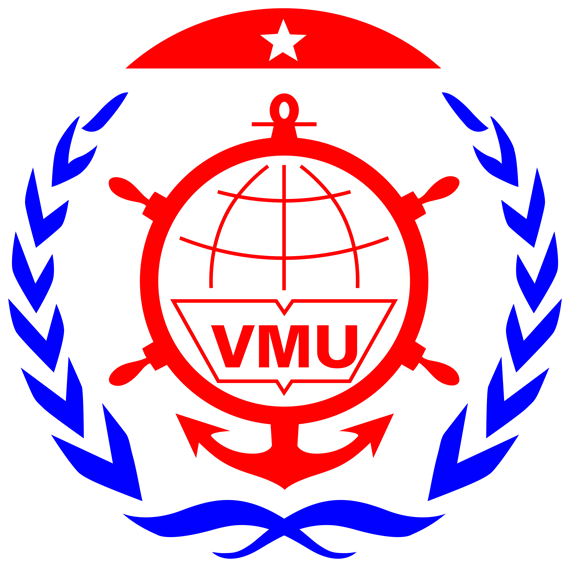1. Introduction
|
Program title: |
Bachelor of Software Engineering |
|
Graduation degree: |
Bachelor's degree |
|
Study model: |
Full-time |
|
Total credits: |
130 |
|
Used language: |
Vietnamese |
|
Training duration: |
4 years (8 semesters) |
|
Responsible Faculty: |
Faculty of Information Technology |
|
Website: |
|
|
Address: |
Room 301, 3rd floor A4 Building, Vietnam Maritime University 484 Lach Tray - Le Chan - Hai Phong |
The Software Engineering training program at Vietnam Maritime University, designed by the Faculty of Information Technology, draws upon programs from various esteemed domestic and international universities. Regularly updated to align with industry needs and adhere to the Ministry of Education & Training and Vietnam Maritime University regulations, the program equips learners with essential knowledge, skills, and attitudes. It meets the Vietnamese National Qualifications Framework and international standards, preparing graduates to excel in the 21st-century workforce. Graduates of the program earn a bachelor's degree in Software Engineering, with the ability to design, implement, and operate IT systems. They are dynamic, creative, and adaptable, ready to compete in the Asia-Pacific region and contribute to national development and international integration. Graduates are qualified for roles such as programmers, software engineers, data analysts, artificial intelligence specialists, information security specialists, IT project managers, UX/UI specialists, game developers, digital marketers, and training and scientific research specialists. These roles encompass tasks ranging from software development, data analysis, AI deployment, system maintenance, cybersecurity, project management, UI/UX design, game development, digital marketing strategies, to IT training and research. The program ensures that graduates are well-equipped to meet societal IT application needs and excel in their respective fields.
The Bachelor of Software Engineering program at Vietnam Maritime University offers a comprehensive education that prepares students for successful careers in the IT industry. With a focus on both theoretical knowledge and practical skills, graduates are well-equipped to meet the challenges of the modern technological landscape.
2. Curriculum
Over the course of eight semesters, students engage in a well-rounded curriculum that blends theoretical foundations with practical applications.
Semester I: Building the Fundamentals
Students begin with core subjects that establish a strong foundation. Algebra emphasizes problem-solving skills, while Discrete Mathematics introduces essential concepts such as logic and graph theory, crucial for computer science. Introduction to Information Technology provides insights into computing fundamentals, and General Law highlights the significance of legal principles in daily life. Computer Architecture and Peripherals explores hardware systems. Additionally, students can choose from optional courses such as MS Office Suite for software proficiency, Basic English 1 for language development, and Soft Skills 1 to enhance communication and teamwork abilities.
Semester II: Expanding Knowledge
This semester deepens students’ understanding with Calculus and a Database course focusing on data organization. C Programming introduces fundamental programming concepts, while Computer Networks covers essential networking principles. Introduction to Software Engineering provides an overview of software development methodologies. Optional courses include Basic English 2 for language improvement and Principles of Operating Systems to reinforce programming expertise.
Semester III: Strengthening Technical Skills
Students advance to more complex subjects such as Probability and Statistics and Data Structures. Windows Programming hones application development skills, while Object-Oriented Programming enhances coding techniques. Core Java introduces structured programming practices. Python Programming, offered as an optional course, further develops programming proficiency.
Semester IV: System Design & Security
This semester focuses on key topics like Information Security and Privacy for data protection and Object-Oriented Systems Analysis for system modeling and design. Microprocessor Engineering delves into hardware functionality, while Basic English 3 supports language proficiency. Students also study IT Project Management and Object-Oriented System Analysis and Design. Optional courses include Advanced Python Programming and Network Design and Administration.
Semester V: Advanced Technologies & Industry Experience
Students deepen their expertise with Developing Applications with Databases, enhancing their understanding of database management. Artificial Intelligence introduces core AI concepts, while an IT Internship provides hands-on industry experience. Courses such as Semi-Structured Data Representation and Software Testing refine technical skills. Optional courses cover specialized topics like Graph Theory, Network Programming, and E-Commerce.
Semester VI: Specialized Studies
This semester focuses on advanced topics, including Image Processing for digital image analysis, User Interface Design (UI/UX) for intuitive interface development, and Data Mining for data analysis techniques. Web-Based Application Development teaches essential web design and programming skills. Students may also choose optional courses such as Robots and Intelligent Systems, Embedded Systems (which integrates hardware and software design), or Open-Source Application Development.
Semester VII: Emerging Technologies
Students explore cutting-edge fields such as DevOps Deployment and Big Data Processing. Mobile Device Programming introduces app development for smart devices, while Deep Learning Techniques provides advanced AI knowledge and practical experience. Optional courses include Internet of Things (IoT), Cyber Security, and Cloud Computing.
Semester VIII: Practical Application & Capstone Projects
In their final semester, students apply their accumulated knowledge through practical experiences. The Graduation Internship immerses them in real-world challenges, while the Graduation Project allows them to integrate and demonstrate their expertise across multiple domains.
This structured and progressive curriculum ensures that students graduate with a solid theoretical foundation, practical skills, and industry-ready experience.
